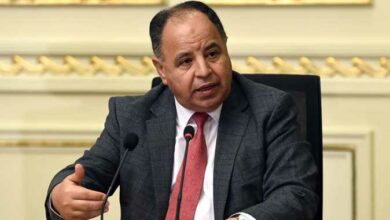The government needs to guarantee transparency in the upcoming elections, said Wafd Party Chief al–Sayyed al–Badawi. His Party’s response, he said, will be painful if the regime does not cede ground in this regard.
In a meeting with new members of his party, al–Badawi advised the regime to heed the calls for fair elections. His party, he said, will boycott the election if no guarantees are provided.
The president of the Wafd Party said he will form a shadow government in October in an effort to prepare his party members for holding office.
Al-Badawi refused to blame the weak communication with the people on the Emergency Law. Some movements have resonated with the people, he added, despite security restrictions.
Al-Badawi said, since becoming party chief, he has reached out to the people by establishing a charity operation that distributes “Ramadan Bags” across Egypt. Al-Badawi plans to distribute blankets in the winter and to pay school fees for poor families.
The Wafd party is also planning to build 15 water purification plants in some villages and to dispatch medical convoys around Egypt.
Al-Badawi also said his party has increased communication with the April 6th movement, Facebook users, and the Wafdist trade union.
The party chief said he rejects statements suggesting democracy and illiteracy are incompatible. In the past, the level of education was lower, he added, yet democracy prevailed.
Meanwhile, Gouda Abdel Khaleq, head of the economic committee of the Tagammu Party, urged leaders of his party to boycott the upcoming People's Assembly elections.
Abdel Khaleq stressed the need for an action plan to push the government to provide guarantees for a fair election. Tagammu participation, Khaleq said, is contingent on transparency guarantees. Public pressure on the government and collaboration between parties, Khaleq added, will encourage free and fair elections.
The Tagammu party leader said running in the People's Assembly elections without these guarantees will only serve to facilitate power inheritance objectives.
Abdel Khaleq called on members of his party to urge the president to abolish the state of emergency, an obstacle, he said, to genuine competition. He also called for a ban on security forces at polling stations.
Abdel Khaleq also specified a number of conditions to ensure the integrity of elections. Among them were allowing the people to vote with their national identity cards, reviewing voters' lists, and permitting judicial supervision of the entire election process.
Meanwhile, Adel Abdel Hamid, former head of the Supreme Judicial Council, emphasized the current independence of Egypt's judiciary.
Asked about judicial supervision in the upcoming People's Assembly election, Abdel Hamid said the judiciary only supervises general councils overseeing the elections. The executive authority, he said, is the entity responsible for supervising the entire election process.
Abdel Hamid said if there are intentions of fraud, then they it will exist even if a judge was stationed at every voting box. In addition, he argued, there is an insufficient number of judges for that purpose.
Translated from the Arabic Edition.




